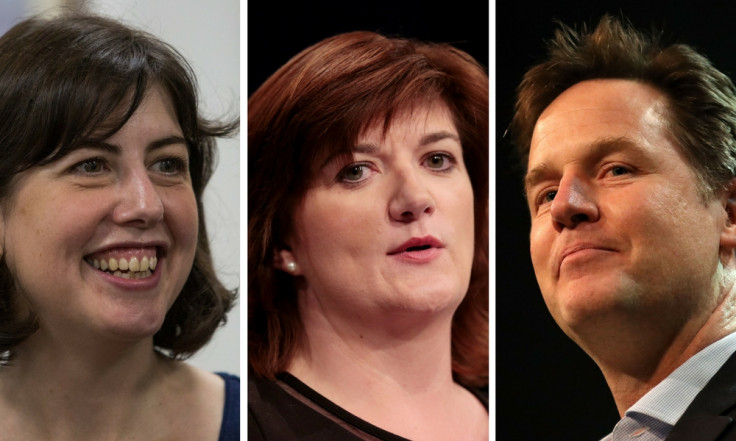Cross-party campaign attacks Theresa May's grammar school plan
Nicky Morgan, Nick Clegg and Lucy Powell say the UK needs to increase social mobility.
Prime Minister Theresa May's crusade to increase to expand the number of grammar schools in England is facing a cross-party campaign to kill off the plans.
In what is an unprecedented move, former Education Secretary Nicky Morgan has joined forces with Labour's shadow education secretary Lucy Powell and Liberal Democrat former Deputy Prime Minister Nick Clegg to oppose the programme.
In a joint article in The Observer, they argue that creating new grammar schools will decrease social mobility and widen the attainment gap at a time when Brexit and the increasing digitisation of the workforce least require it.
"We must rise to the challenge with a new national mission to boost education and social mobility for all," they said. "That's why we are putting aside what we disagree on, to come together and to build a cross-party consensus in favour of what works for our children not what sounds good to politicians."
Their message to May and other MPs comes as the House of Commons will debate social mobility in the coming weeks.
Roughly 30 Conservative MPs are said to oppose May's grammar school plans, which is enough to defeat the government if the issue is voted on and opposition parties vote against the plans too.
If the government backs down, it would be the second time May and her cabinet have been forced into a major U-turn following the embarrassing climb-down on increasing National Insurance Contributions.
That reversal was forced as the increase would have broken a promise made in the 2015 Tory manifesto. Opponents argue the same would be true if the ban on grammar schools was lifted as there was no mention of the plan in the document.
Morgan, Powell and Clegg took a clear swipe at May as they outlined their criticism of grammar schools.
"Those championing selection as the silver bullet for tackling social mobility, or as the panacea for creating good new school places, are misguided," they said
The article adds: "All the evidence is clear that grammar schools damage social mobility.
"Whilst they can boost attainment for the already highly gifted, they do nothing for the majority of children, who do not attend them.
"Indeed, in highly selective areas, children not in grammars do worse than their peers in non-selective areas.
"Having the brightest children in comprehensive schools helps raise standards for all, increasing aspiration and intellectual capital in a school. This isn't a zero-sum game.
"As Sir Michael Wilshaw [the former head of Ofsted] has said, he delivered an excellent education for his pupils through the comprehensive system precisely because the school was mixed ability."

© Copyright IBTimes 2025. All rights reserved.






















